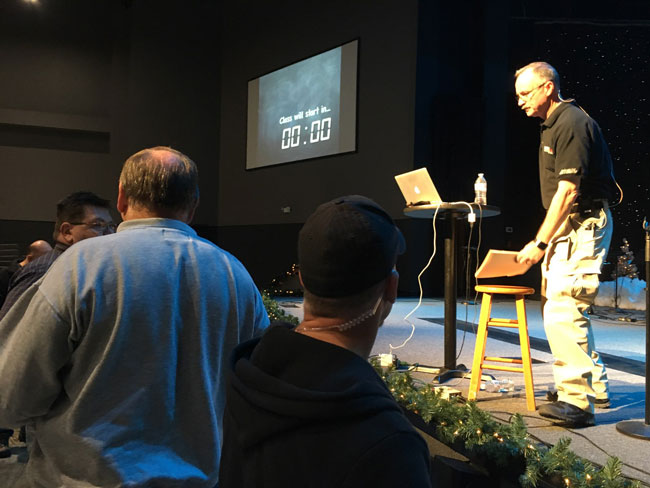Sentry One Consulting Group will work with your safety team and/or staff to develop a comprehensive consulting and training package designed to meet the needs of your church currently and going forward.
The focus will be to build a vibrant, self sustaining safety ministry that is first ambassadors for Christ and then protectors of the flock.
The program can include all or any combination of the elements listed below or can be tailored around any specific goal of the church.

Survey the current campus and all associated buildings and structures for safety related physical issues. Produce a summary report identifying any corrective actions recommended.
Observe and understand what related functions are currently being accomplished both during service times and within the regular work week.
Examine and recommend updates and/or corrections to existing ERP and any other related safety procedural documents currently in use.
Using the finalized Emergency Response Plan (above) as the core, build the manual to be used first as a screening tool for Safety Team recruits and then as a guide to how the team is organized, operates and routinely trains team members for the various safety related duties.
In addition, this Training Manual will have modules designed to address the specific safety related learning requirements expected of volunteers and staff working in the various other ministries on the church campus. Including but not limited to ministries such as Greeters, Ushers, Childcare Workers, Committee Leaders, etc.
Attend a scheduled staff meeting with the goal of presenting an overview of the basic safety and security related issues the staff should be aware of during the week as well as service times.
This is the foundation class from which a newly forming team should be built. Recommended as a prerequisite to membership and/or deployment on a “Safety Team” and also recommended for all greeters and users. It is also recommended as a kick off point to invite other local churches and start the development of working relationships where safety related intelligence and training is shared… even across denominational lines.
Produce a written guideline for the member recruitment process as well as an actual application package to be completed by each potential member recruited.
Attend and conduct the first board review of new recruits who have completed the application process and have been approved by staff for the final step to membership on the Safety Team.
This will be designed to accommodate not only the needs of the Safety Team but will allow other critical ministries and functions on campus to communicate effectively both routinely during normal business and tactically during an emergency. Train operators on basic radio protocol and establish a written SOP for radio communications.
It is prudent to evaluate the function of any existing systems and report operational issues as well as suggest enhancements to the utilization of the equipment and to the equipment itself.
Starting after the basic Safety Team is in place and operational, conduct real time stress based training scenarios designed to train and test good decision making skills as it relates to high risk safety situations. It will be recommended that the Safety Team actually conduct similar type training every month in addition to the quarterly trainings conducted by the Consultant. The Consultant will work with team leadership to format these monthly training events and provide guidelines to help make the training times effective. The quarterly training by the Consultant will be used to both evaluate and enhance the team’s training profile.
The Consultant or designate will attend a future service anonymously with the goal of testing the elements of the current safety process. Issues will be documented and provided in the form of a breach report with recommendations on any needed corrective actions.